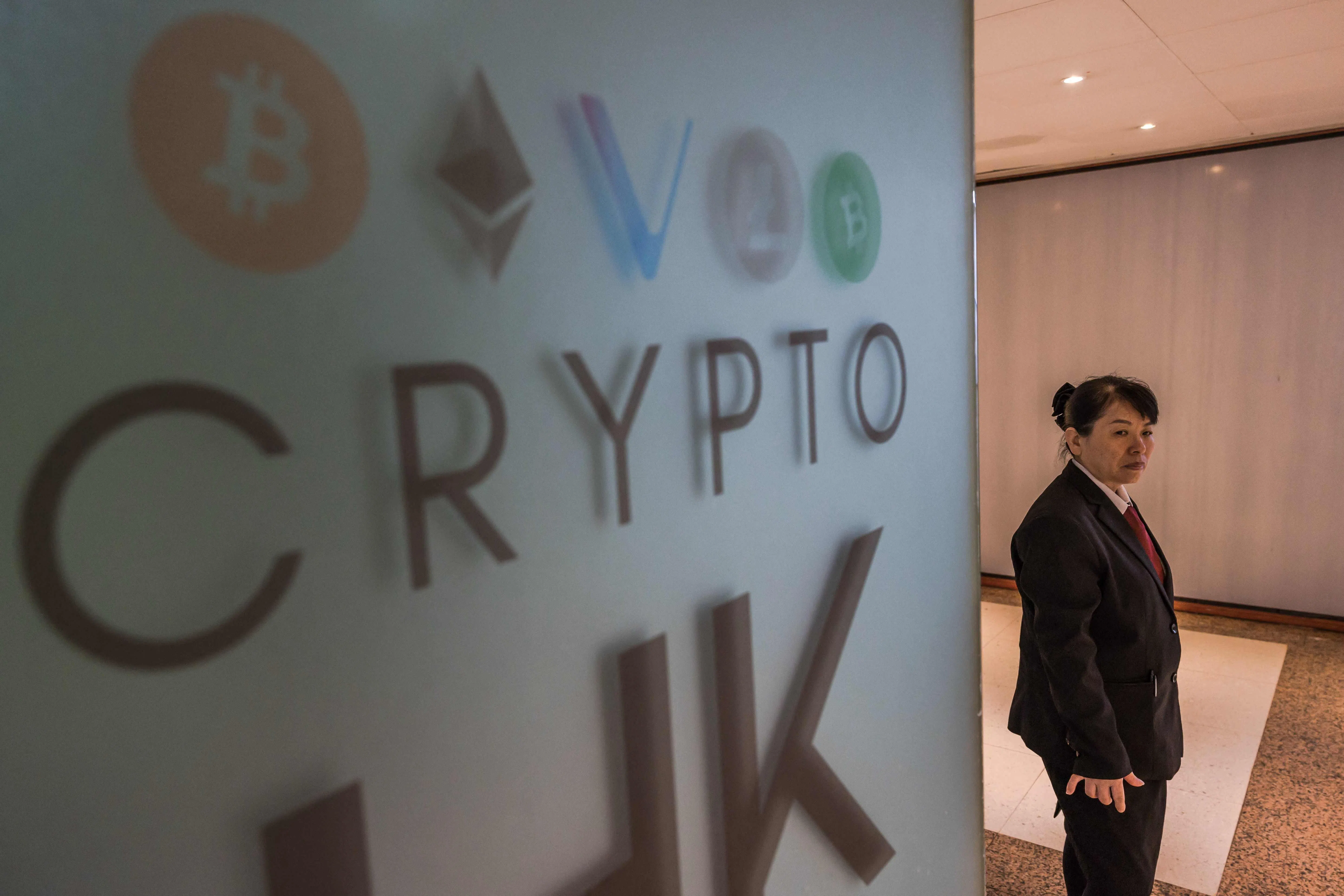HONG Kong’s push for a digital-asset hub faces growing pains amid uncertainty over whether 11 crypto exchanges will all achieve full licences after earlier receiving initial approvals.
The city’s Securities and Futures Commission (SFC) found unsatisfactory practices at some of the “deemed-to-be-licensed” platforms during on-site inspections carried out since they won the designation in June, sources familiar with the situation said, asking not to be identified because the information is private.
Some of the crypto firms are overly reliant on a handful of executives to oversee the custody of client assets, while others are not properly guarding against cybercrime risks, the sources said.
It’s unclear which firms fell short of the SFC’s requirements. The inspections are ongoing and subject to change, according to the sources. The findings add to the challenges officials face to foster a flourishing crypto centre in the city.
Licence applicants
The 11 deemed-to-be-licensed exchanges include global players such as Crypto.com and Bullish, as well as HKbitEX, PantherTrade, Accumulus, DFX Labs, Bixin.com, EX.IO, YAX, WhaleFin and Matrixport HK.
Crypto.com did not comment on the inspections, while the other exchanges did not respond to inquiries from Bloomberg News.
BT in your inbox
Start and end each day with the latest news stories and analyses delivered straight to your inbox.
A spokesperson for the SFC said that while the agency does not comment on specific cases, the inspections were carried out to ascertain whether applicants adhered to its requirements, “with a particular focus on their safeguarding of client assets and know-your-client processes”.
For platforms that are unable to remedy “critical deficiencies identified during on-site inspections, the SFC may opt to remove their deemed-to-be-licensed status or refuse their licence applications”, the spokesperson added.
Licensing crypto exchanges is a cornerstone in Hong Kong’s Web3 agenda that was first proposed in 2022 – part of a bid to restore the city’s appeal as an international financial hub following a political crackdown. But authorities have taken a relatively cautious approach that has so far struggled to generate much traction in terms of personnel shifts or capital inflows.
JPEX scandal
A major scandal involving JPEX, an unlicensed crypto platform, has spurred officials to prioritise investor protection. The alleged scam stung 2,636 victims with a total of HK$1.6 billion (S$268 million) in losses, according to the police. The investigation for prosecutions is ongoing, a police spokesperson said.
The exchanges under scrutiny have been forbidden from on-boarding new clients until they are granted full licences. If turned away, applicants would need to restart the submission process from scratch.
Full licences are expected to be issued around the end of 2024 for firms that satisfy all requirements, SFC chief executive officer Julia Leung said in June.
Only two crypto platforms – OSL and HashKey – are fully licensed in Hong Kong at present. Those operating before Hong Kong installed its regime were allowed to remain open for business while applying for a licence. Non-applicants had to exit the market by the end of May.
The licensing process has already seen 12 companies withdraw their applications, including Huobi HK, OKX, Bybit and VAEX. BLOOMBERG







